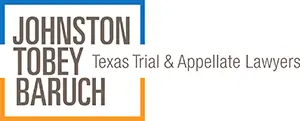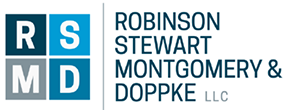Current Status
Price
Get Started
Randy Johnston
Shareholder | Board Certified in Civil Trial Law Consultant - Legal Ethics and Malpractice | Johnston Tobey BaruchJim Doppke
Partner | Experienced Legal Ethics Advisor and Litigator | Robinson Stewart Montgomery & Doppke LLCLegal Ethics and Professional Responsibility: A Comprehensive Guide for Lawyers | On-Demand Webinar
Broadcast Date: Thursday, September 22, 2022 from 12:00 pm to 2:00 pm (ET)
Handling complex situations ethically and with professional responsibility remain challenging for legal practitioners. Some of the pressing ethical dilemmas in the legal landscape involve attorney-client privileged communications, protection of confidential information, and the ethical considerations stemming from the use of technology. Any violation of ethics rules may not only result in criminal prosecution but can significantly damage the lawyer’s reputation.
Today, lawyer ethics is placed under immense pressure. Thus, legal practitioners should be well-versed in their ethical and professional obligations in every critical area of their legal practice.
Listen as experienced legal practitioners Randy Johnston (Johnston Tobey Baruch) and Jim Doppke (Robinson Stewart Montgomery & Doppke LLC) provide a comprehensive discussion of the ethical and professional responsibility of lawyers. Speakers, among other things, will also offer essential tips and strategies to overcome critical challenges in the legal profession.
Key Topics:
- Frequent Ethical Dilemmas for Lawyers
- Ethical Considerations During Complex Situations
- Handling Confidential Information and Protecting Attorney-Client Privilege
- Practical Tips and Strategies to Avoid Legal Pitfalls
- What Lies Ahead
Agenda:
Segment 1
Randy Johnston, Shareholder, Johnston Tobey Baruch
- Covid trials – Something New under the Sun
- Decorum issues: where were you sitting, what are you wearing.
- Technology cost – must have x, y, z and changing.
- Sophistication req’d: muting, inadmissible document.
- Civility issues: no face-to-face interaction in future?
- Witness coaching: Notes, laptops, phones, breaks etc.
- Cross exam of runaway witness: interrupting?
- Open to public/Others in the room w/ witness, juror? Live broadcast by others? Privacy concerns ?
- Juror attention: use of phones, television, children
- Juror pressure from spouses.
- Loss of Majesty for courts and the profession.
- Conflicts representing entities-some things never change.
- ABA Rule 1.13
- Creating a new entity with money guy and idea guy
- 90% of new businesses fail
- Problems with the LLCs: unincorporated associations
- Directions from CEO that disadvantage minority owners
- Documents, bills, etc. as evidence
- Sex with clients-some things never changed!
- Does your State have a rule? Texas does not.
- ABA 1.8j: “relationship is almost always unequal”
- chicken and egg approach: which first?
- Miscellaneous factors matter:
- anyone married,
- sex in the office,
- discounted bills,
- hero worship,
- care if disclosed
- More than one person can be motivated to file a grievance.
- Representing couples-who do you trust?
- “We want X and not Y.”
- Do you call the other to confirm?
- 50% of marriages ended in divorce
- may be adverse someday
- 90% when there is a death of a child.
- Biggest trap is for estate planners.
- closer to one of the spouses than the other?
- More likely to take the word of one?
- Is past practice of the couple a defense?
- “We want X and not Y.”
Segment 2
Jim Doppke, Partner, Robinson Stewart Montgomery & Doppke LLC
- Working remotely across state lines
- Liberalizing trend began during early pandemic
- Now several ethics opinions expressly approving of practice
- Caution: “holding self out”
- Virtual Practice – ABA Op. 498
- Precautions re confidentiality and supervising employees
- Special focus on data security and trustworthiness of software/devices/networks
- Maintaining systems for paper/checks/files
- Proposed changes to Rule 5.5
- Enhancing lawyer mobility
- Helping to close access-to-justice gaps
- Complications for regulators (enforcement), practitioners (competition), and consumers?
- Accepting fees from third-party payors
- May be even easier/more common in remote work
- Rule 1.8(f)
- informed consent
- no interference with the lawyer’s independence of professional judgment or client-lawyer relationship
- information relating to representation of a client is protected as required by Rule 1.6.
- how to protect information/privilege
- how to ensure professional judgment remains independent
- What if payor stops paying?
Who Should Attend:
- Lawyers
- Legal Assistants
- Paralegals
- Law Clerks
- Law Office Managers
- General Counsel
Credit:
Course Level: Intermediate
Advance Preparation: Print and review course materials
Method of Presentation: On-demand Webcast (CLE)
Prerequisite: NONE
Course Code: 1410064
NY Category of CLE Credit: Ethics and Professionalism
Total Credits: 2.0 CLE




